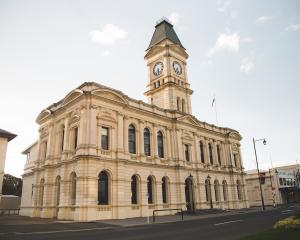An Otekaieke man who has sole rights over gold mining most of the upper reaches of the Maerewhenua River says he's been harassed, abused and threatened for doing what is legally his right.
Dale Franklin, on August 5, was issued a 10-year mining permit for gold, covering 53.43ha of the Maerewhenua riverbed which included most of the north branch, the south branch and past the Danseys Pass Camp to just below Pringles Gully Rd, south of Duntroon.
A six-inch suction pump on a 2.4m-long pontoon boat will be used, bought from the United States at a cost Mr Franklin estimated at more than $20,000, including other equipment.
He has closed his claim to gold prospectors, except for one, leading to some vitriolic responses from people illegally fossicking for gold in the area covered by his claim.
It also prompted criticism and questions from New Zealand and overseas anglers, who fear for the future of the renowned trout fishery.
Abuse and threats have come through social media, blog sites and phone.
The mining permit was granted by the government department, the New Zealand Petroleum and Minerals, but required resource consent from Environment Canterbury to disturb the riverbed. An application had not been lodged.
The permit application cost $3500, but much more was spent providing the details and reports needed, he said yesterday.
Central South Island Fish and Game has been in contact with Mr Franklin and its chief executive, Jay Graybill, hopes the consent application will be notified so it and others can have their say.
''If it requires resource consent, we believe it is proper it is notified.''
Mr Franklin had offered to demonstrate the suction dredge to the council.
A keen angler, who fished the Maerewhenua River, he emphasised he would do nothing that would ruin it, and believed more harm was being done by illegal prospectors.
He had observed people digging holes in banks, discolouring the water, defecating and leaving rubbish on the banks and in the river.
It was one of the reasons he had applied for a permit, and then put up a notice advising people it was illegal to prospect on his claim.
The notice was removed, but he claimed to have photographic evidence from hidden cameras as to who was responsible.
As well as physically policing the claim, he was using the cameras to catch offenders.
The Proline pontoon suction dredge he bought was developed to meet strict mining controls in places like California and stirred up very little silt.
Mr Franklin was ''not going to make a fortune'' from the operation. It was more of a hobby but being done legally. At this stage, he did not know when he would start operating. That would depend on his health and resource consent.
Another keen angler, former Danseys camp owner Neil Thorpe, described the dredging as ''the demise of the Maerewhenua River''.
''All hell has broken loose in the fishing community.
''I have had calls from the US, UK and Australia and all over NZ asking what the hell is going on.''
No-one knew of any resource consent application or had been contacted by Petroleum and Minerals, he said.
They had heard rumours, but the first confirmation they had was when Mr Franklin put up the sign.
Camp owner Scott Brown said the proposal could affect the camp because it had people staying to prospect for gold, and to fish.
The camp had for about 40 years advertised gold prospecting on the river and, even though it was illegal, had never had it questioned.












